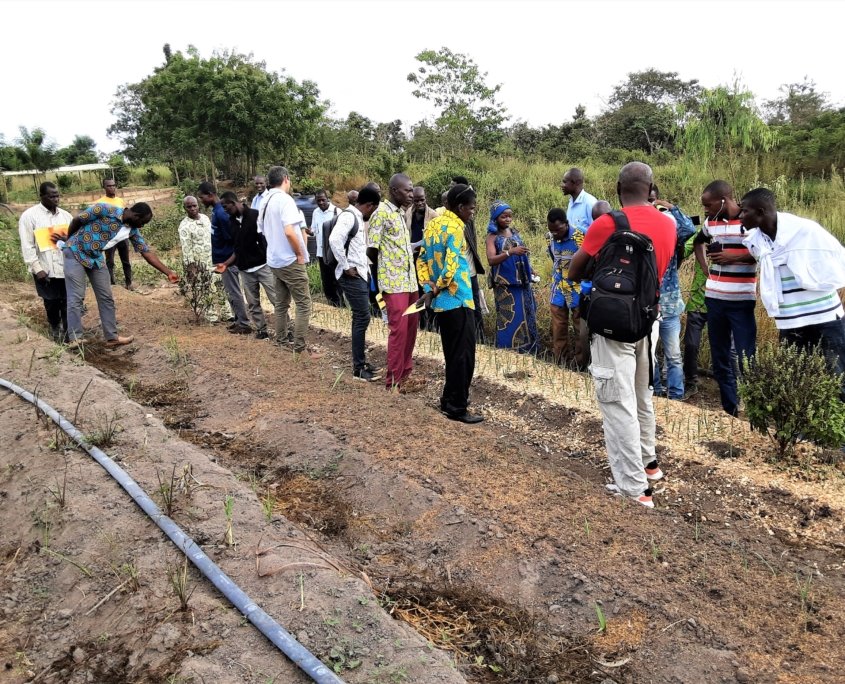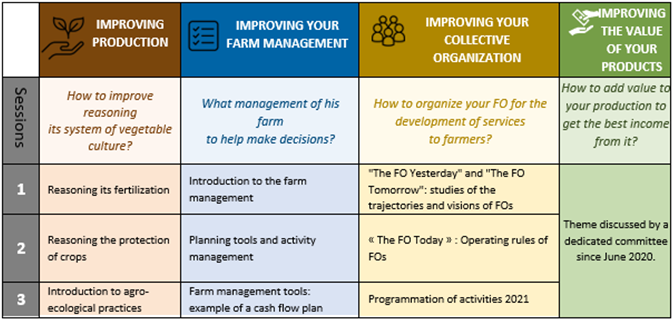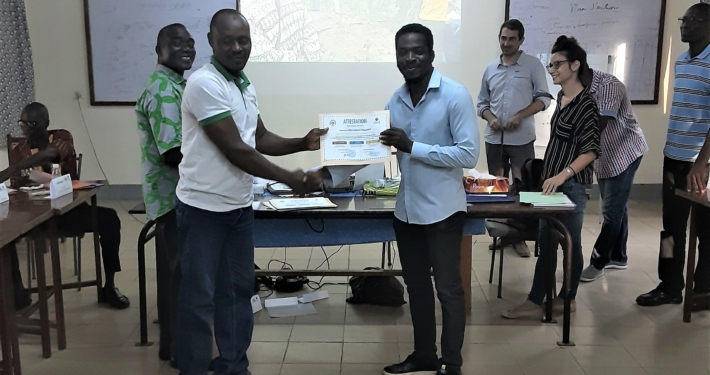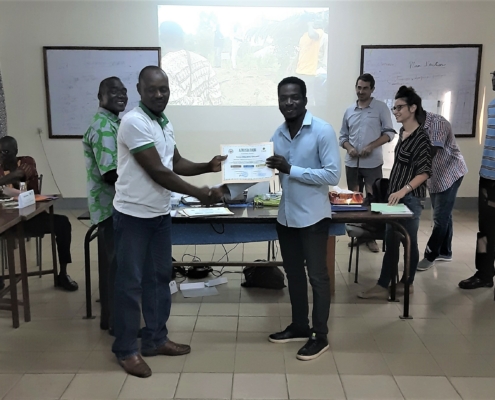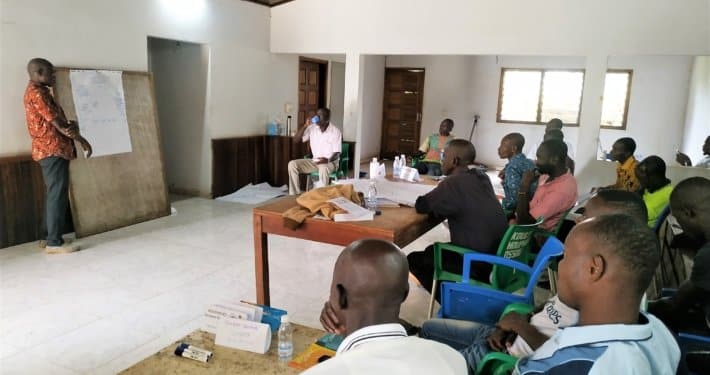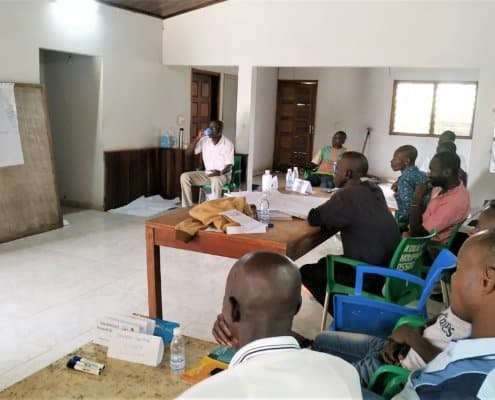In 2020, Fert supported the Regional Union of Vegetable Farmers of Gbêkê (URMAG) in Ivory Coast and its 475 member farmers in setting up a system of 25 first relay farmers in order to consolidate local advisory services and optimize the spread of agricultural practices.
Since 2019, Fert has been supporting Urmag in developing services for vegetable farmers and strengthening its viability. Two agricultural advisors supported by a coordinator work with the farmers of Urmag and its 14 grassroots FOs on technical, economic and organizational issues linked to vegetable production. In order to further develop the advisory service, the Union wished to implement a system of relay farmers.
URMAG
14 actives FO
475 farmers and 25.5% womens
In 4 department of Gbêkê region
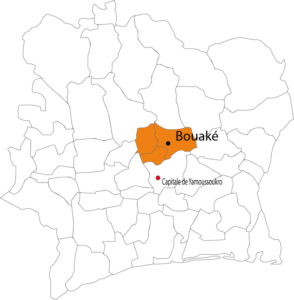
Relay farmers, with agricultural advisors, are essential to ensure effective and sustainable local agricultural advisory services. This approach allows a change of scale in advisory activities; relay farmers can have access to more farmers and have a good degree of credibility. Indeed, they have farming know-how combined with new techniques that they themselves have tested. Relay producers, as intermediaries between the FO and the farmers, can also facilitate the development of services that best respond to the needs of the members.
To set up this system, the leaders of Urmag and the agricultural advisors of Fert initiated an information and sensitization campaign among the grassroots FOs. The objective was to discuss expectations and identify farmers who volunteered to become relay farmers.
Training and support for future relay farmers
The implementation of this kind of system requires training volunteer farmers in their new role. Within Urmag, 25 producers received training between October and December 2020. Divided into three three-day sessions, the aim was to strengthen their skills. Beyond the aspects of agricultural techniques, management and organization, the producers were also trained in the role and position of a relay farmer within a FO.
The participants were very satisfied of this training which allowed them to approach new aspects of their job, in particular the economic management of an farm. They now feel more able to support other farmers in the implementation of agro-ecological practices and know how to use new tools that are very useful to basic farmers’ organizations, such as campaign plans.
” Advisors need to follow us to help us apply what we’ve learned”
“By participating in the planning exercise at the training workshop, I am now very comfortable with the tool”
“This training is a framework for exchanging ideas and sharing experiences”
In 2021, meetings will be organized between the newly trained relay farmers so that they can share their first experiences. Each quarter, they will discuss in small groups four different themes: production techniques, management and access to means of production, post-harvest and marketing, and organization and governance. These meetings will also enable the relay farmers to plan cross-cutting actions to develop agricultural advisory and technical-economic services for the farmers of the union.
Complementarity between agricultural advisory services and relay farmers
Relay producers are not intended to supplant salaried agricultural advisory staff; on the contrary, it is a matter of building complementarity between farmers’ knowledge and the knowledge of the advisors. Urmag’s relay farmers are already being supported by the agricultural advisors in their first actions. An active and complementary collaboration between the advisor and the relay farmer is thus gradually being set up within Urmag.

